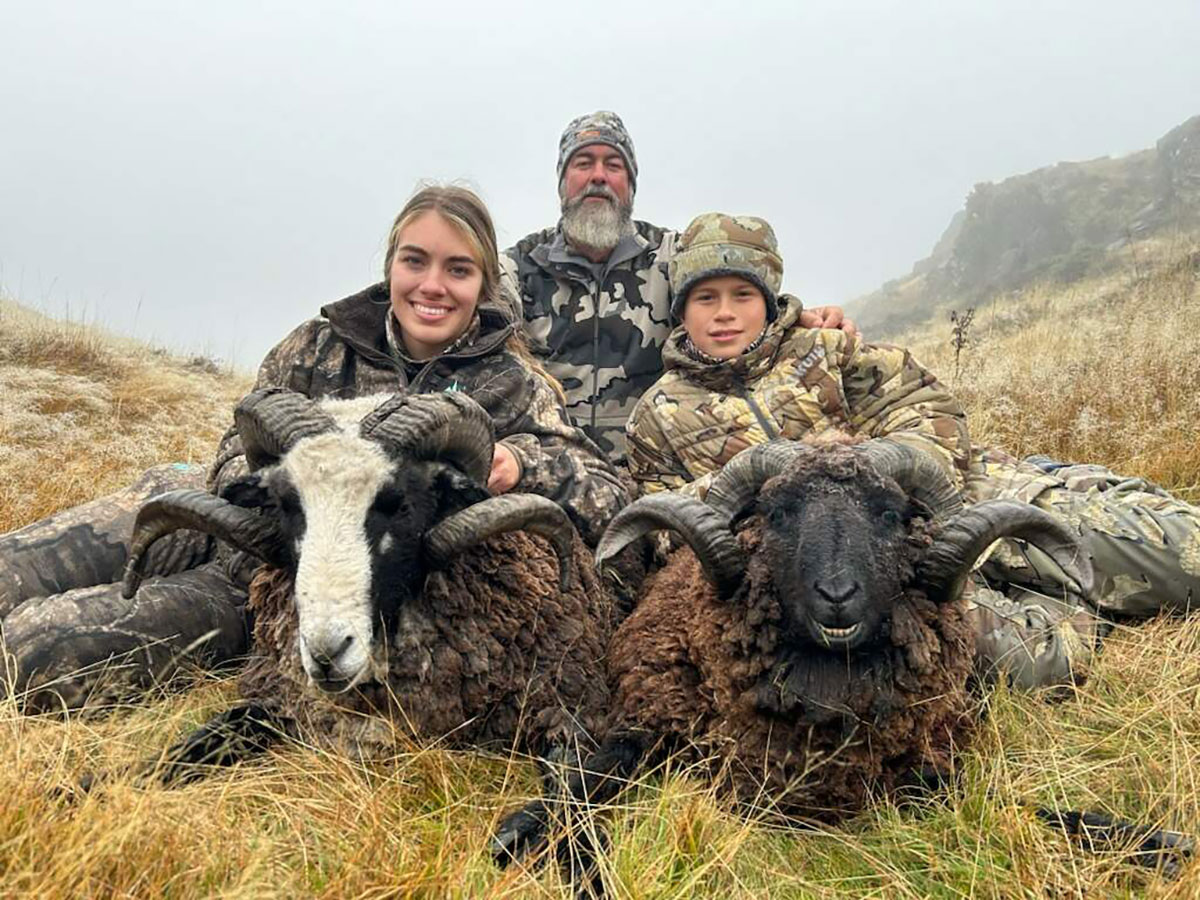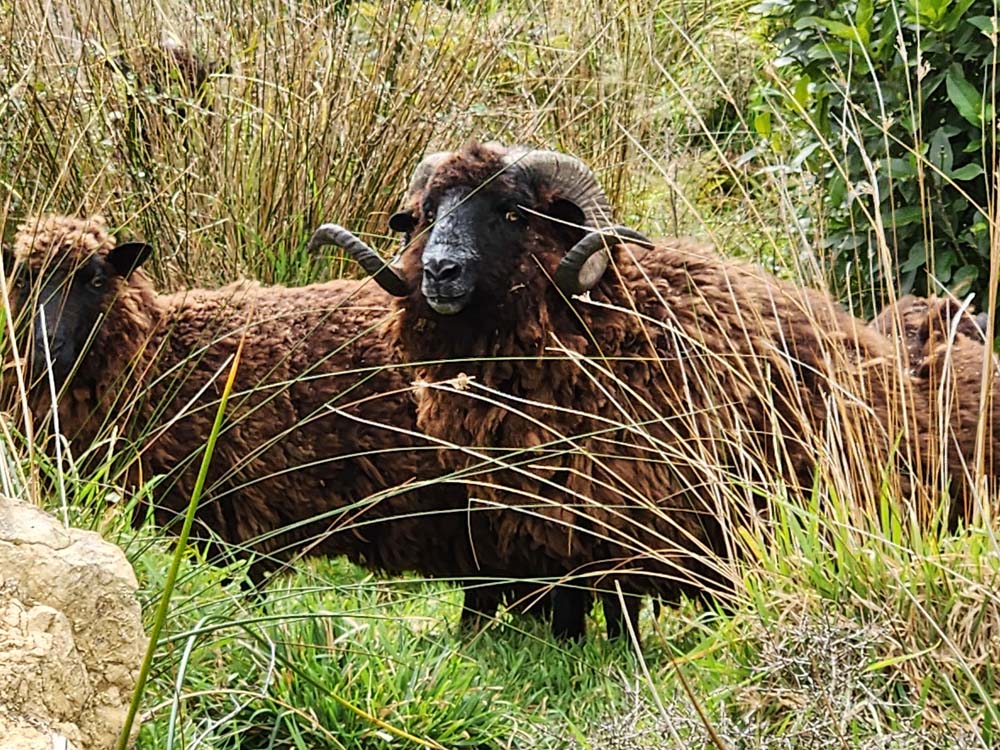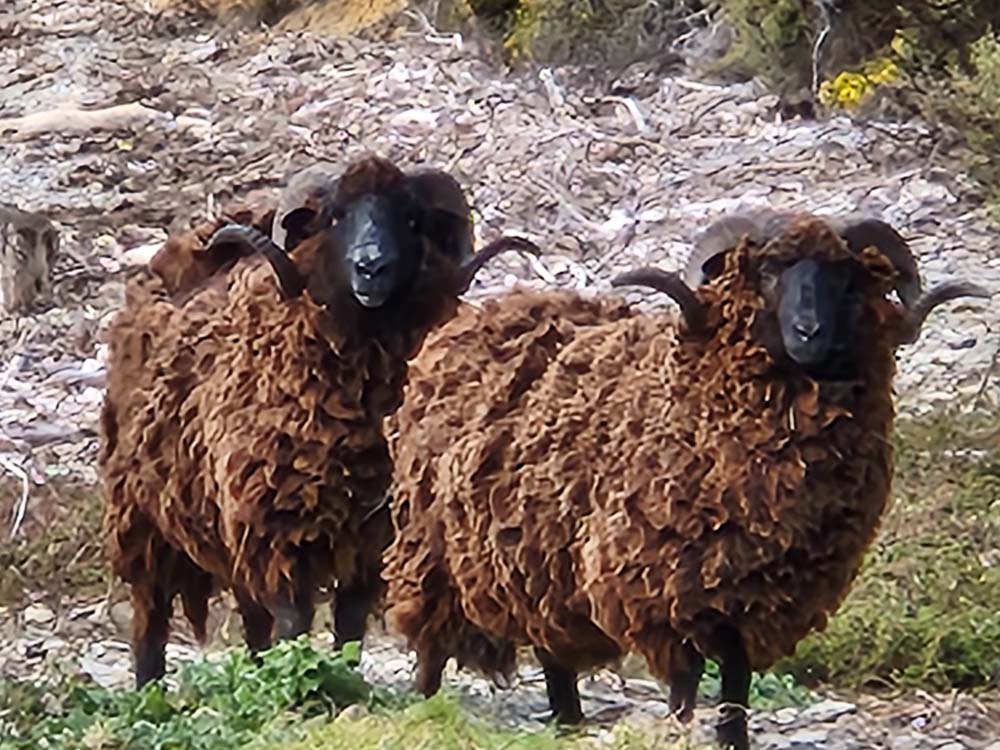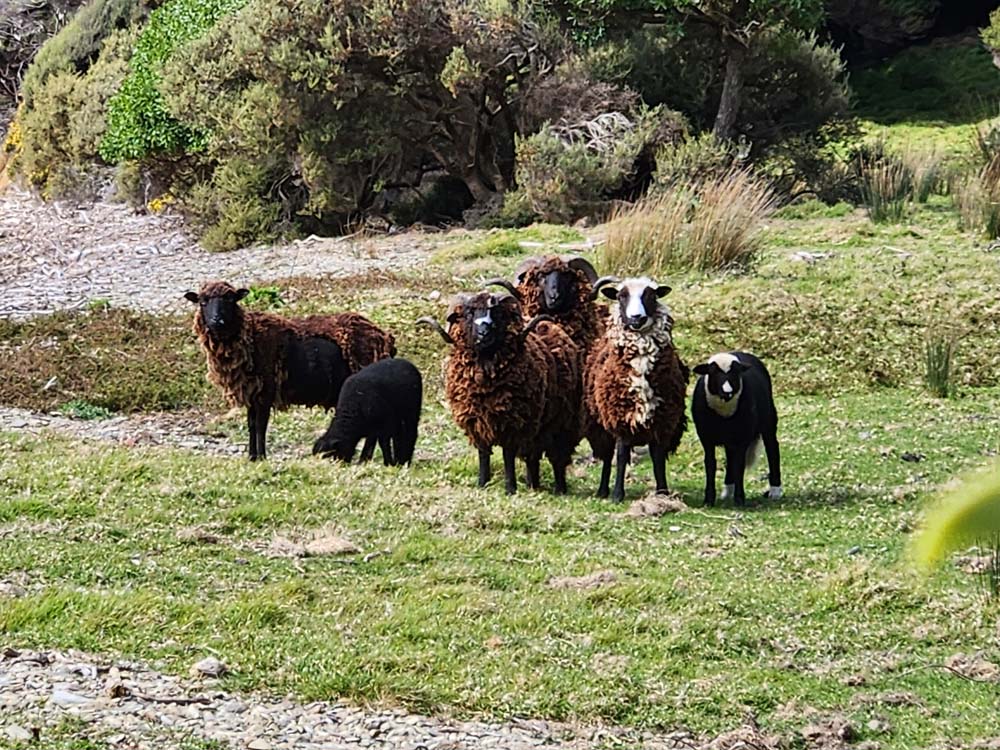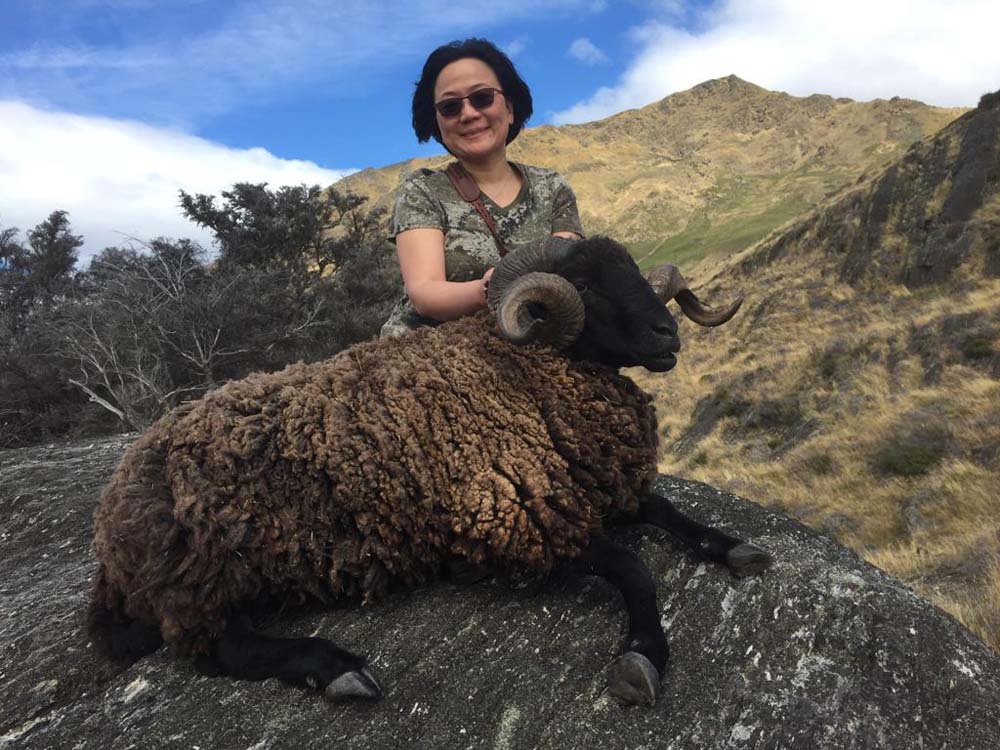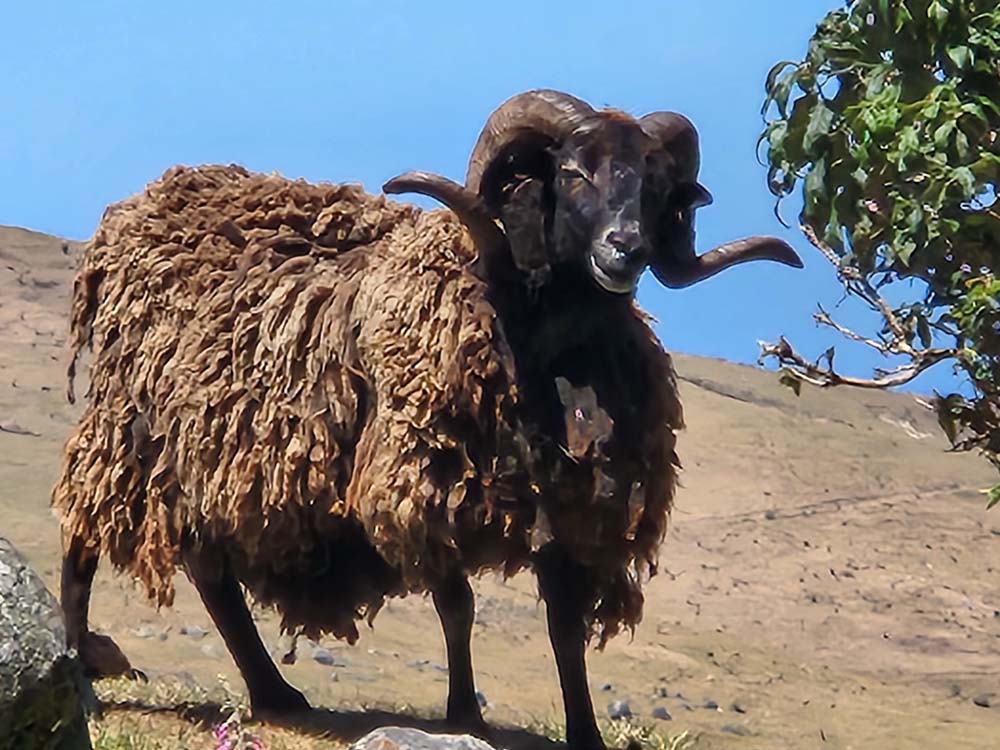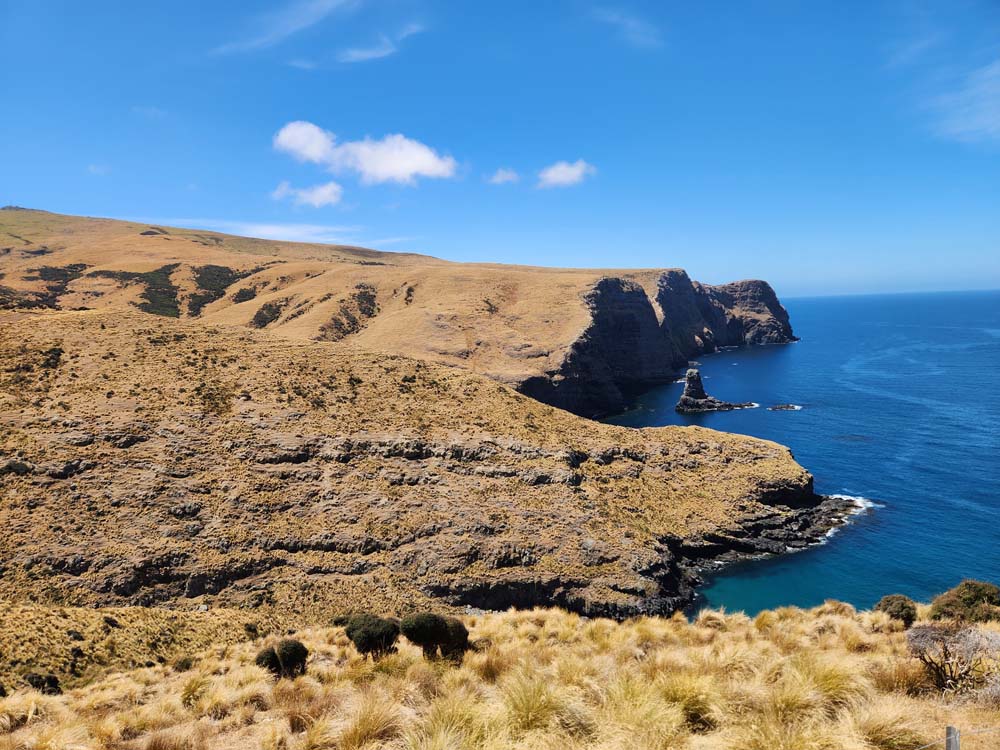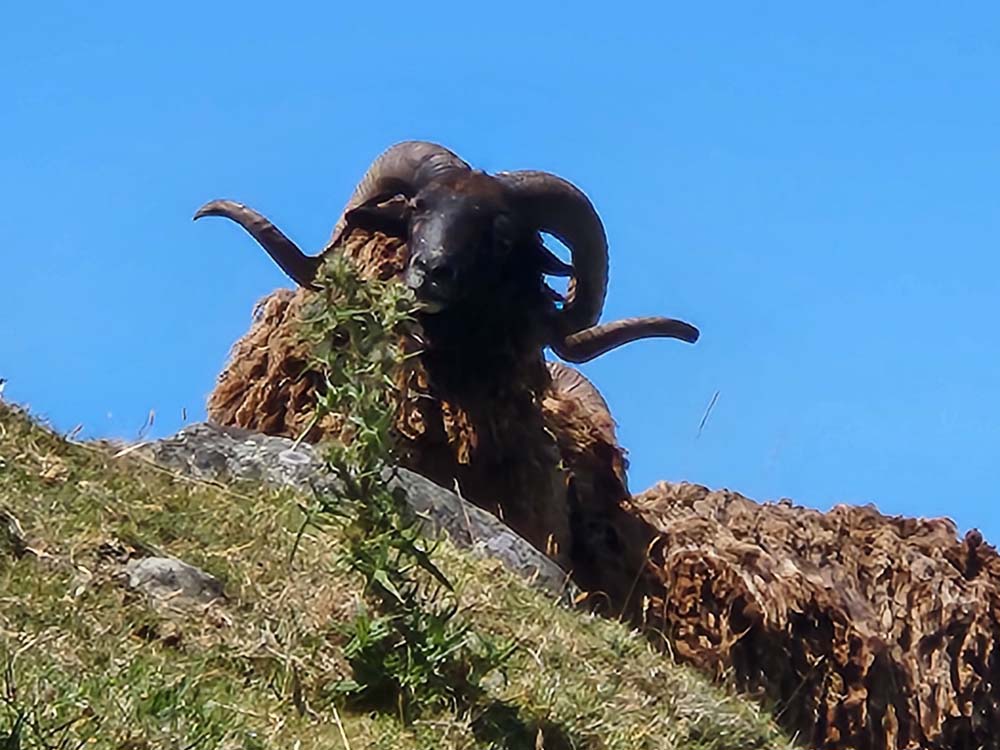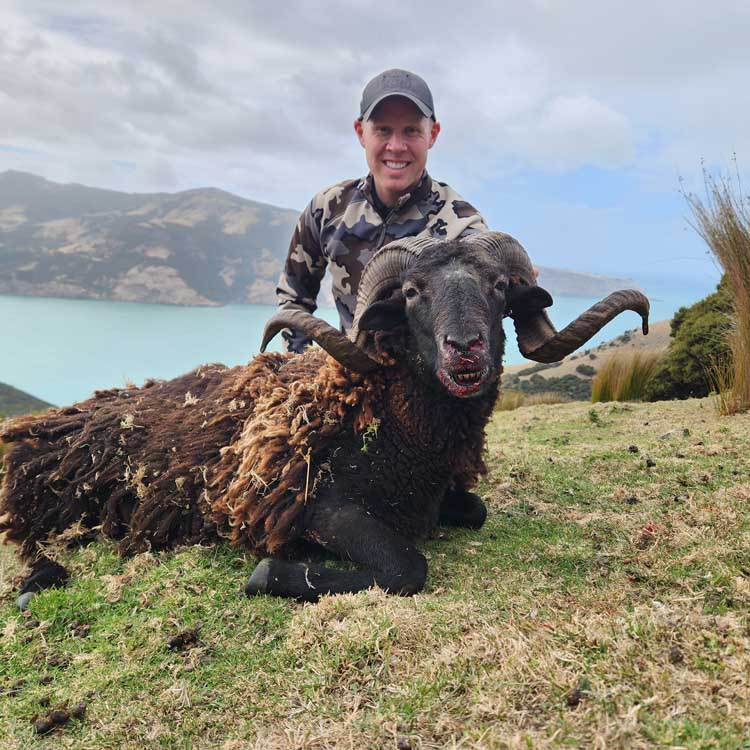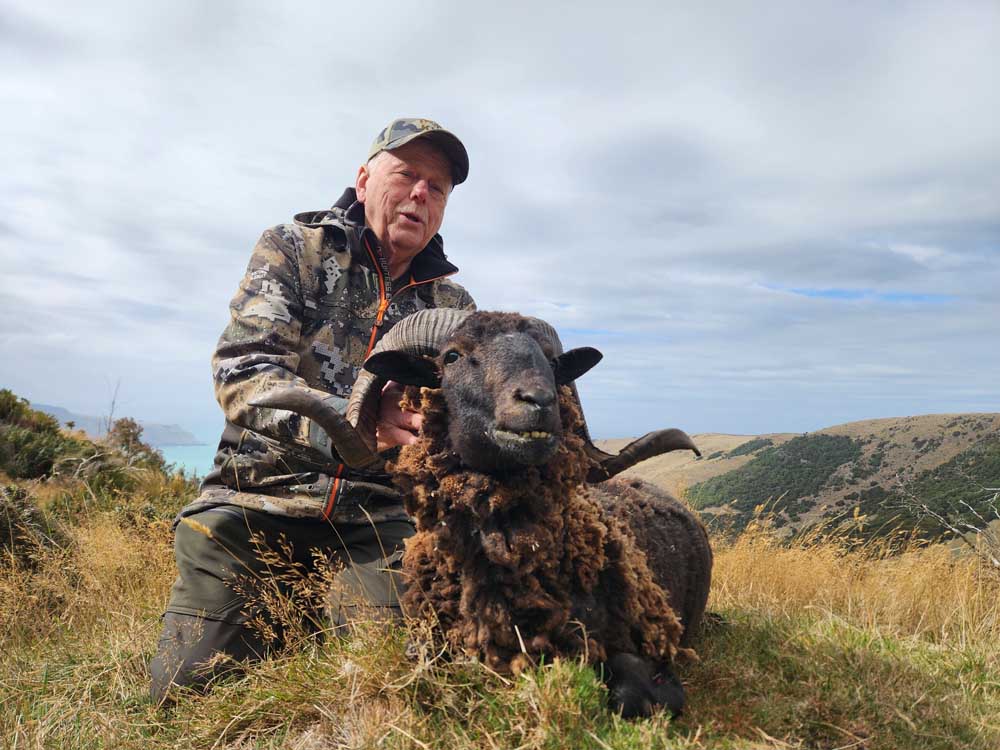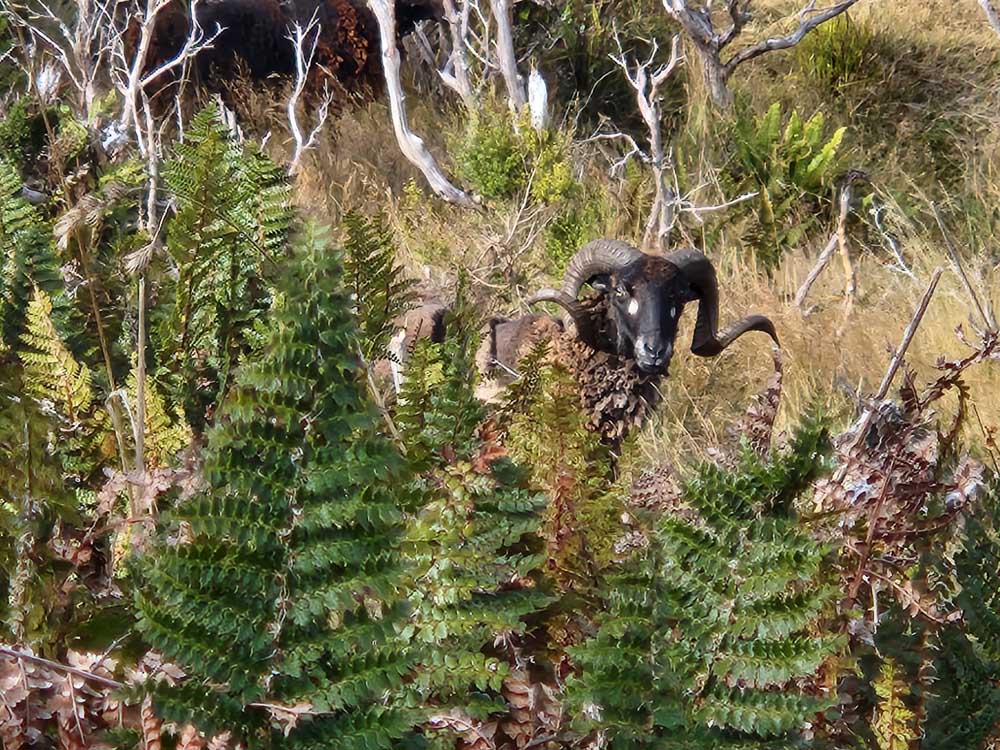Wild Sheep hunting in New Zealand
In New Zealand there are several wild sheep herds. Scattered up and down the country including a few offshore remote island herds.
Sheep were first brought to New Zealand as farm stock during the earliest times of European settlement. The first sheep were brought to New Zealand by Captain James Cook. Some of those original descendants form part of the bloodlines of what some people call the Arapawa Island sheep. Most of these sheep have since been removed from Arapawa Island and taken into captive breeding programs on the mainland to produce Trophy animals for hunting estates. These Arapawa Island sheep are the species most New Zealand safari parks (behind a high fence) operators use.
In recent times some private blocks have released Arapawa Island sheep onto their free range hunting blocks. One of the properties I guide on for free range Red and fallow deer also has a wild herd of these sheep available for trophy hunting.
The majority of the free range sheep hunting opportunities come from the domestic Merino sheep species. During the development of farming in areas of rough and party fenced country it was inevitable that some of these animals would eventually stray and become wild. Today most wild sheep can be found on the mainland, either in the central North Island or the South Island high country. But it is in on the remote Chatham Islands where our most recognised free range wild sheep can be found. I offer my clients to free hunt wild sheep either in the central South Island or on the remote Chatham Islands by special request.
Arapawa Island Sheep
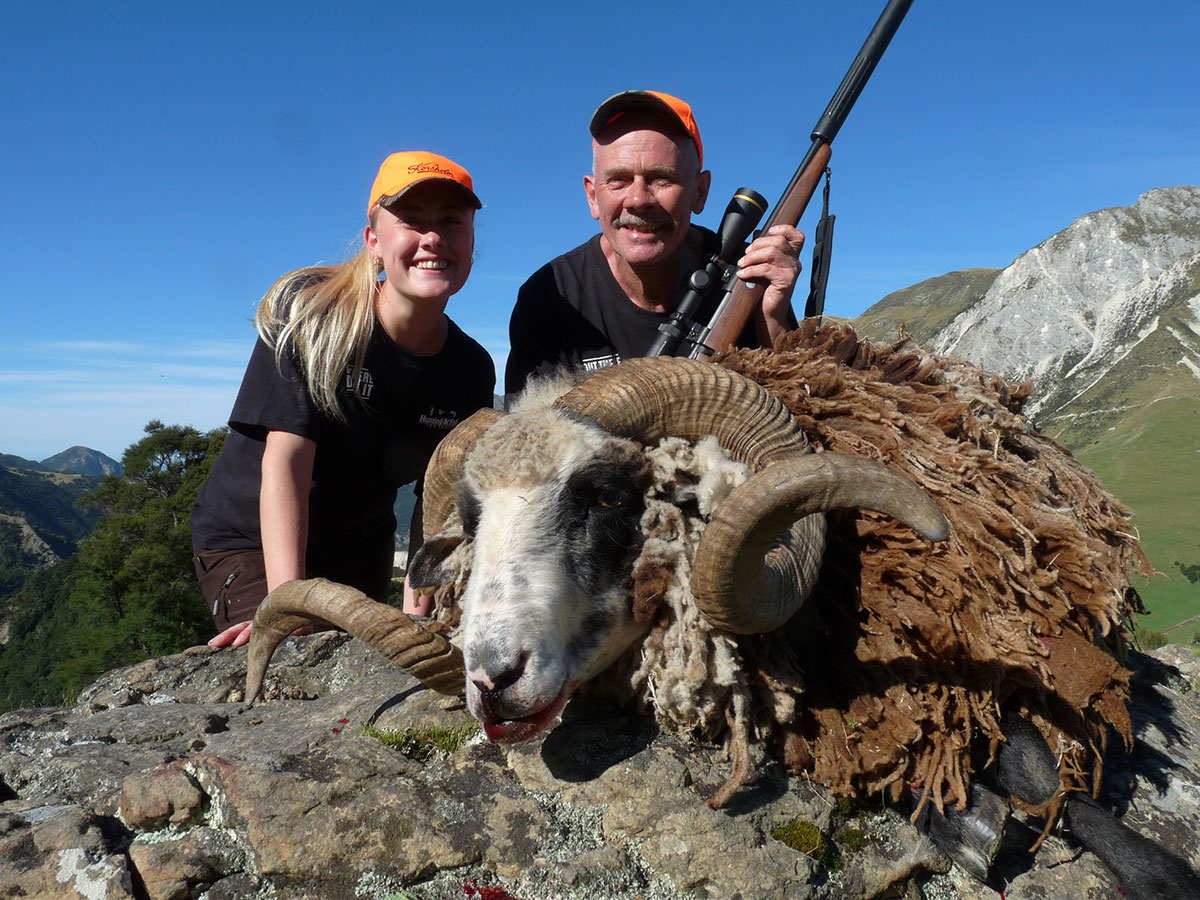
A unique breed only found in New Zealand.
Even to this present day, it’s still unproven as to who and when arapawa sheep were introduced, to what until recently was called Arapawa island, now Arapaoa island.
Apparently, it was misspelt hence the name change. If you didn’t know Arapaoa Island is located on the eastern side of Queen Charlotte sound in the Marlborough Sounds.
The two most likely possibilities are either, it was an early sailing ship, such one of the American whaling vessels, that released the sheep, or Captain Cook himself who recorded gifting some sheep to local iwi at ‘Ships Cove’.
The problem is there is no way to prove the source of origin. They were most likely put there as a potential food source for any ‘would be ship wrecked sailor’. As I said, it is an unsolved mystery.
Pickering and Young produced an ag research paper which through DNA testing, proved that they are genetically unique, with their closest DNA relative being another critically endangered sheep flock called the ‘Gulf Coast Native sheep’ in Florida USA. Arapawa sheep has been acknowledged as the oldest flock in New Zealand, being recorded as being well established as far back as the 1860s. In the Mid 1980’s the numbers of arapawa sheep dropped to critical numbers with a population of around 100 animals, the rare breeds conservation society mustered several arapawa island sheep off the island of which forms the basis of the animals offered to hunt on games estates today. Arapawa sheep can only be hunted in New Zealand and mainly in game estates with a few free-range herds also available. On the Island itself the population has now dropped below 100 animals and so no hunting is available there. The Arapaoa island herd of Arapawa sheep is the rarest wild herd in the world and critically endangered, the establishment of Arapawa sheep in games estates offers conservation benefits by ensuring the continued survival of the species with the established of populations off the island, should the species become extinct on Arapaoa island.
We offer a range of opportunities to hunt these unique arapawa rams on a few game estates and it’s a fun hunt. Trophies from this breed can be entered with SCI.
Pitt Island Sheep
The most wily of all our wild sheep herds.
Much less known than the Arapawa Island sheep is the Pitt Island sheep.
Like all the other herds of wild sheep in New Zealand (with the exception of the Arapawa sheep), Pitt Island sheep has its origins to Saxon merino’s. Although very similar in appearance to the Arapawa, they are not related. They are, however, the most wily of our wild sheep, and for the life of me, I can't understand why they are not on everyone’s bucket list that hunts New Zealand. The original herd comes from Pitt Island, which forms part of the Chatham Island group, with its release/escape dating back over a 170 years ago. While it is possible to hunt Pitt Island sheep on Pitt Island, and yes, we can organise to hunt them there, a herd has been established in the South Island on the Banks Peninsula close to my hometown of Christchurch, which is only a short 2-hour drive from the city centre. We can hunt this herd as a day or overnight adventure. This is a fun hunt, offering excellent views of the greater Canterbury area and a great way to start or end your visit to New Zealand..

